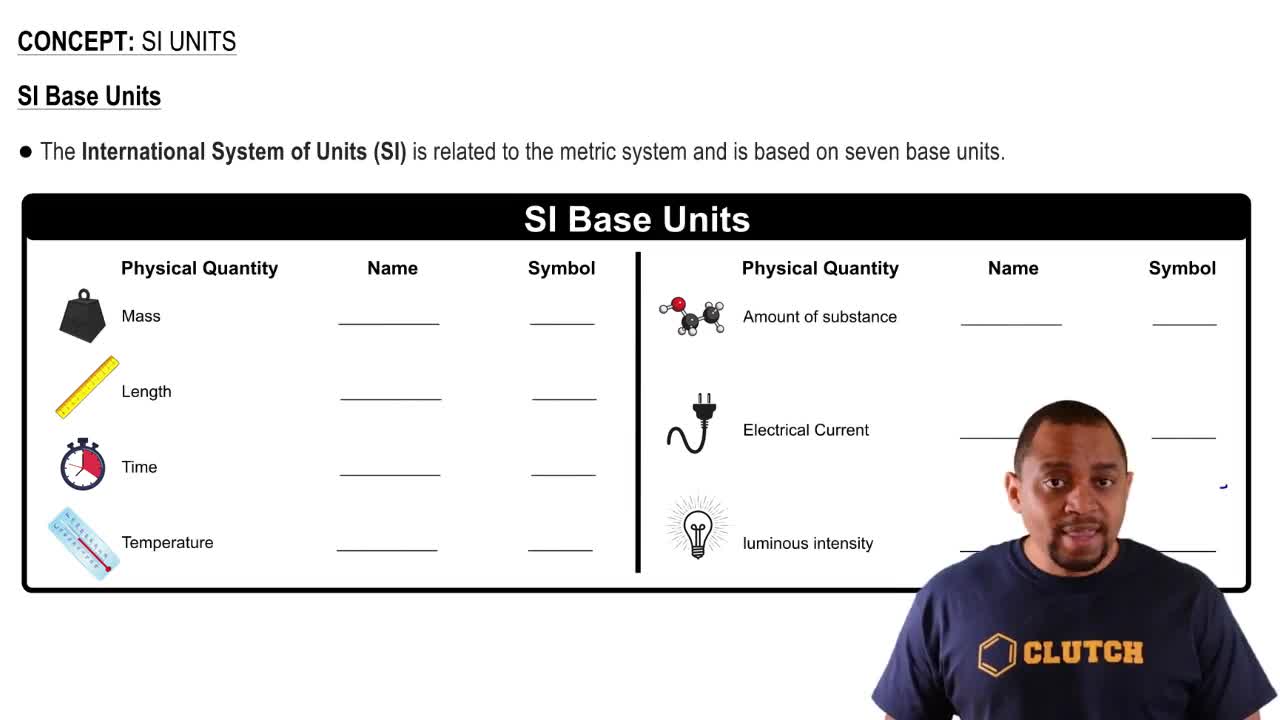Textbook Question
Calculate to the correct number of significant figures. c. (9443 + 45 - 9.9) × 8.1 × 106
1156
views

 Verified step by step guidance
Verified step by step guidance



Calculate to the correct number of significant figures. c. (9443 + 45 - 9.9) × 8.1 × 106
Calculate to the correct number of significant figures. d. (3.14 × 2.4367) - 2.34
A flask containing 11.7 mL of a liquid weighs 132.8 g with the liquid in the flask and 124.1 g when empty. Calculate the density of the liquid in g/mL to the correct number of significant digits.
Perform each unit conversion. a. 28.9 nm to mm b. 1432 cm3 to L c. 1211 Tm to Gm
Perform each unit conversion. a. 154 cm to in b. 3.14 kg to g c. 3.5 L to qt d. 109 mm to in
Perform each unit conversion. a. 1.4 in to mm